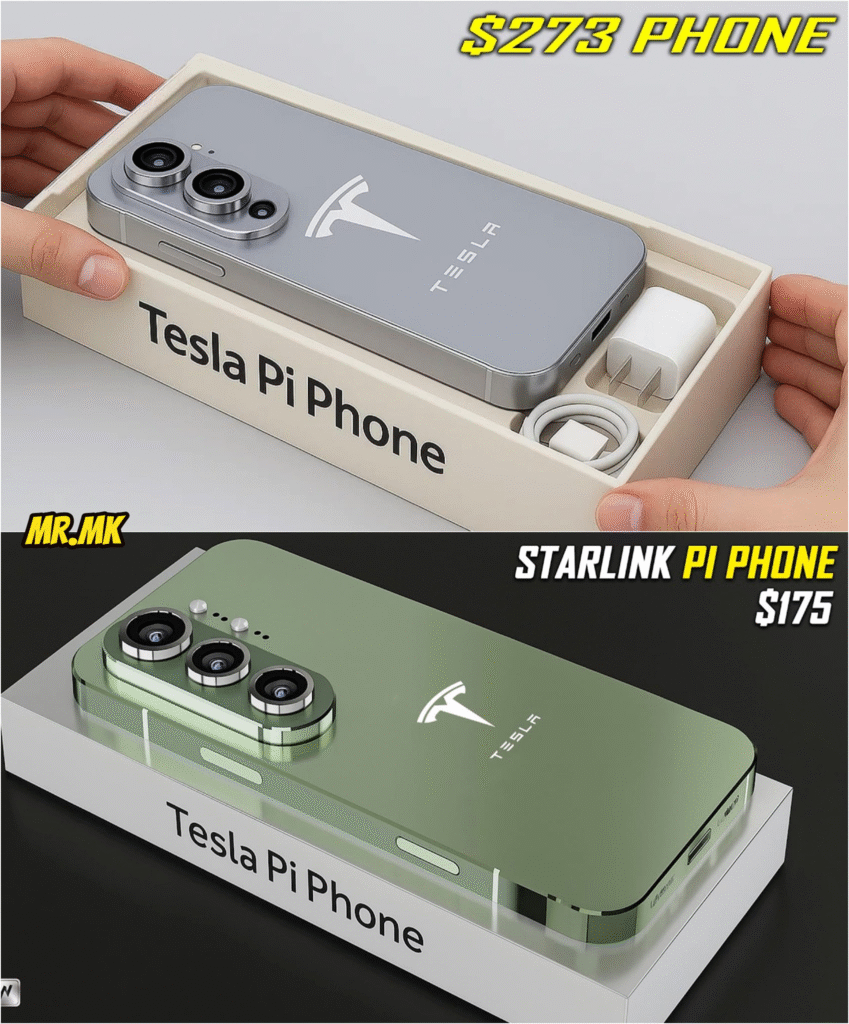
The $157 Tesla Pi Tablet: Debunking Rumors vs. Elon Musk’s Blueprint to Destroy the Tech Industry
The tablet market is bracing for a potential earthquake. While Apple and Samsung dominate the premium sector with devices costing well over $1,000, new online reports—though completely unconfirmed by Tesla—suggest Elon Musk may be preparing to launch a tablet, the rumored Tesla Pi Tablet, priced at an astonishing $157.
If the speculation holds even a fraction of truth, this price point represents a massive 93% disruption compared to high-end rivals like the iPad Pro ($2,399) or the Samsung Galaxy Tab S9 Ultra ($1,199). The mere rumor of this device, regardless of its reality, provides a blueprint for how Musk could leverage his ecosystem to completely reshape the consumer electronics landscape.
The SHOCKING Strategy: Global Connectivity for $157
The core of the alleged disruption lies not just in the price, but in the integration of SpaceX’s Starlink satellite internet—a feature that could render traditional data plans obsolete.
Starlink: Cutting the Cord (and the Bill)
The most compelling rumored feature of the Pi Tablet is the built-in Starlink connectivity.
How this saves you thousands:
- Eliminating Data Bills: By connecting directly to the Starlink satellite network, the Pi Tablet could potentially bypass the need for expensive cellular data plans (SIM cards) or unreliable Wi-Fi hotspots. Over the lifetime of a device, eliminating monthly data fees of $50–$100 could save a consumer thousands of dollars.
- Zero Dead Zones: Whether you’re in the mountains, the desert, or a remote rural area, the global Starlink constellation ensures instant and reliable connectivity. This capability transforms the device from a simple tablet into a true, global communication hub, instantly changing the expectations for mobile devices.
- Vertical Integration Advantage: Musk’s companies are masters of vertical integration. By owning the internet service (Starlink/SpaceX) and the device (Tesla), they could offer the connectivity at a much lower—or even free—cost, bundled with the tablet, a move impossible for competitors who must pay third-party carriers.
7 Bold Strategies to Rival the iPad Pro
Musk’s strategy for disruption goes far beyond price and connectivity. The rumored features suggest a device designed for the future, not just the present.
- Ultra-Durable Design & Self-Repair: Rumors suggest an “Immortal Tech” philosophy, focusing on an ultra-durable build and self-repair capabilities. This would challenge the industry’s planned obsolescence model, leading to a much longer lifespan for the device.
- Solar Charging: Potential built-in solar charging capabilities could allow the Pi Tablet to maintain power off-grid, a huge advantage for global users and a nod to Tesla’s renewable energy mission.
- Next-Gen Processor: The tablet is rumored to feature a custom, next-gen processor capable of rivaling high-end laptop chips (like the Apple M-series), delivering premium performance at a budget price.
- Tesla Ecosystem Integration: Seamless integration with the Tesla ecosystem could turn the tablet into a command center for vehicles, Powerwalls, and other Tesla products—a unique selling point that Apple or Samsung cannot replicate.
- Neuralink Compatibility: The most futuristic, yet speculative, feature is rumored Neuralink compatibility, positioning the device for advanced applications in the years to come.
- Direct-to-Consumer Distribution: Tesla’s model of selling directly through its own stores and online platforms, bypassing traditional retail markups, is a key component in achieving the ultra-low price point.
- Massive Price Disruption: The $157 price tag alone is the ultimate strategy, aiming to force all competitors to drastically cut prices to compete, effectively destroying their current profit margins.





